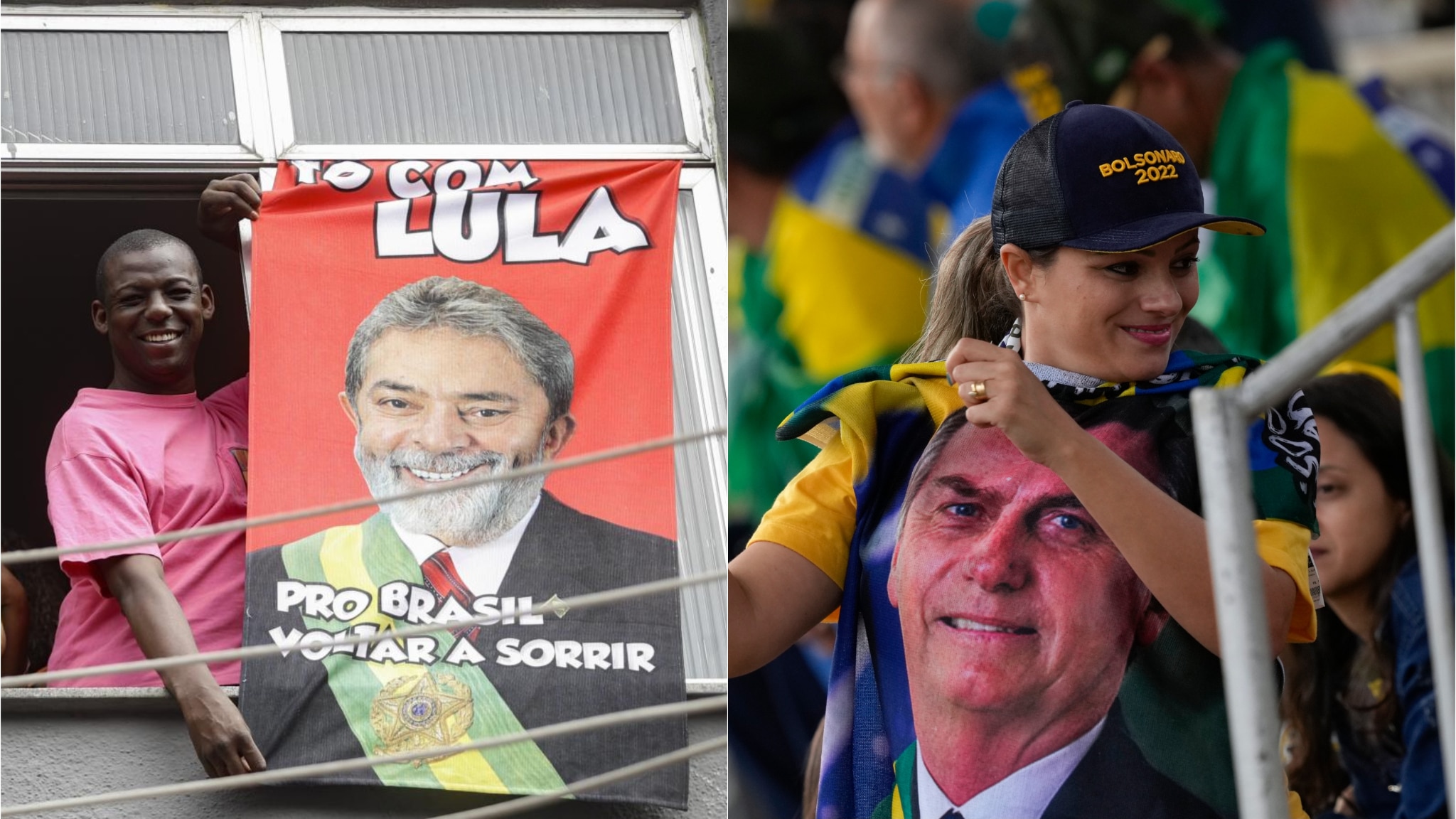Brazil goes to the vote on October 2 to elect the new president who will govern the carioca country for the next four years.
A country of continental dimensions, with 156 million voters distributed in 5,570 Brazilian cities and 181 cities abroad.
52.6% of the voters are women;
the state with the highest number of voters is São Paulo with 22.1%, the lowest number of voters is Roraima with 0.23%.
The number of young Brazilians is also high, about 2 million, aged between 16 and 18 at the polls for the first time.
The former president Luiz Inácio "Lula" da Silva (76), of the Workers' Party (PT), and the outgoing president, Jair Bolsonaro (67), of the Liberal Party (PL), contend for the seat.
The polls give the former president "Lula" to 48% against 41% of the current head of state, Jair Bolsonaro who aspires to renew his mandate.
But to win in the first round they need 50% of the votes plus one, under penalty of a ballot, set for the last Sunday in October.
In addition, Brazilians will elect 26 state and federal district governors, 27 senators and 513 deputies.
The run for the presidency sees 11 other candidates, including Ciro Gomes, of the Democratic Labor Party (PDT), and Simone Tebet, of the Brazilian Democratic Movement (MDB), in the callus in preferences with 3.5% and 2.1 % percent respectively.
For 25 years, the largest democracy in Latin America has adopted the electronic ballot system whose electoral results can be known with agility, security, competence and transparency after just two hours of closing the polling stations.
Brazil hit inflation of 12% and the unemployment figure was close to 10%.
After the pandemic, which killed more than 670,000 Brazilians, 33 million are starving.
A country strongly polarized and divided in a struggle between "good and evil" in which the demonization of the adversary as a "political enemy" prevails.
But the murder of a supporter of Bolsonaro during a brawl in a bar in the State of Santa Caterina contributed to further inflame the spirits.
Brazil, in addition to being a socially divided country, is also geographically divided: the north-east, very poor, where most of the population is concentrated, which puts its hopes on economic subsidies and the southern and central-eastern region, for years dedicated to agriculture and livestock, in which the sectors that support the Brazilian economy and exports are rooted.
Bolsonaro, stronger in this richer part of the country, who does not want the
return of the PT.
Bolsonaro, the third most popular political leader in the world on his social networks with 43 million followers, recently addressed a harsh attack on his opponent, Lula: “The PT now sells itself as the 'love' party.
Taking into account that they have promoted the largest corruption network in history and placed Brazil among the most violent nations in the world, with murder figures at the level of a country in civil war, the love they talk about is outlawed ”.
In a climate of tense and frenetic struggle, caused by changes in strategy, frictions and contradictions in the speeches of both candidates, Lula and Bolsonaro are also tempted by the vote of believers, especially evangelicals who in 20 years, with dizzying growth also among the population - they are a third - they can currently count 30% of the legislators in Congress.
Lula urgently needs to get some of those votes in order to win in the first round or to grab a possible victory in the ballot.
Instead for Lula the question is how to reach the evangelical and conservative voter without disturbing his own left-wing voters, who want to see changes in legislation on gender equality, abortion, sexual diversity, religious and civil rights.
Lula, convicted of corruption, served 19 months in prison, which was later canceled for some irregularities in the trial conducted by Judge Sergio Moro, later Minister of Justice under Bolsonaro.
The leftist candidate during his electoral campaign promised to "rebuild the country, devastated by the current president and candidate for a second term, Jair Bolsonaro, according to Lula" incompetent, inhuman and genocidal ".

